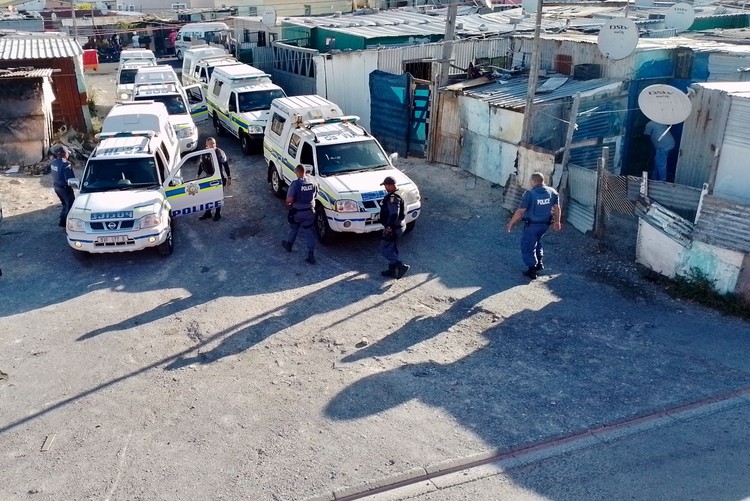Cape Town protection money syndicates kill people, kill livelihoods
A salon owner was shot dead on Wednesday apparently for refusing to pay protection money
A salon owner was shot dead at his place of business in Philippi, Cape Town, on Wednesday morning, apparently for refusing to pay protection money. Photo: Sandiso Phaliso
- A salon owner was shot dead at his place of business in Philippi, Cape Town, on Wednesday morning.
- Witnesses said he had refused to pay a protection racket and the criminals wanted to send a message.
- It is an open secret that most businesses in the township are paying off extortion rackets, sometimes more than one per business.
On Wednesday morning a salon owner in Philippi, Cape Town, was shot dead at his place of business apparently for refusing to pay a “protection fee”.
Relatives of the victim asked that he not be named as many next of kin have not yet been informed of his death.
Eyewitnesses to the shooting, who out of fear refuse to be named, told GroundUp, four men entered the salon. An argument followed when the salon owner refused to pay, saying he had paid a different extortion syndicate the previous week. The men then assaulted him at gunpoint.
“One of them said they should send a message to us other businesses about what happens when people refuse to pay. The next thing they shot him. There were three gunshots,” said an eyewitness.
The murdered man’s cousin said he received the awful news at 9am.
“I think he refused to pay these guys because he already paid at the end of February. People open small businesses to feed their families and now they are killed,” he said.
Police spokesperson Captain Frederick Van Wyk said, “The motive for this incident forms part of the police investigation.”
He said the victim was taken to hospital where he died from his wounds.
He was not the first business operator to be murdered for refusing to pay. GroundUp is aware of several other cases where extortion rackets are suspected of pulling the trigger. The extortion gangs also kill each other in fights for turf.
Hair salons, vegetable stalls, meat sellers, furniture and electrical appliance dealers say they are now too scared to operate. Some owners told GroundUp they are closing for the foreseeable future.
A Philippi vendor said the streets of the township have become a war zone. It does not matter how small one’s business is, the syndicates want 25% of the month’s earnings, he said.
Another business owner said they have asked the police for protection but they get none. “I think what makes matters worse is the fact that there are no police stations to serve the Philippi population and there is not enough police visibility,” he said.
Most people are too scared to go to the police station.
Nyanga Community Policing Forum (CPF) cluster chair Martin Makasi said they have raised their concerns about the syndicates with the City of Cape Town and SAPS. The City established a unit to deal specifically with protection fees, and SAPS had deployed more officers to identified crime hotspots.
He said they “appeal to community and business members to report cases of [extortion], and reject the notion of paying, because they won’t stop”.
“Efforts are being made to address the problem, but if people don’t report, it is going to be tough for law enforcement agencies to deal with the cases.”
Next: Millions spent but seven years later this sports complex is still incomplete
Previous: Questions over how national orchestra is spending public money
© 2024 GroundUp. This article is licensed under a Creative Commons Attribution-NoDerivatives 4.0 International License.
You may republish this article, so long as you credit the authors and GroundUp, and do not change the text. Please include a link back to the original article.
We put an invisible pixel in the article so that we can count traffic to republishers. All analytics tools are solely on our servers. We do not give our logs to any third party. Logs are deleted after two weeks. We do not use any IP address identifying information except to count regional traffic. We are solely interested in counting hits, not tracking users. If you republish, please do not delete the invisible pixel.



